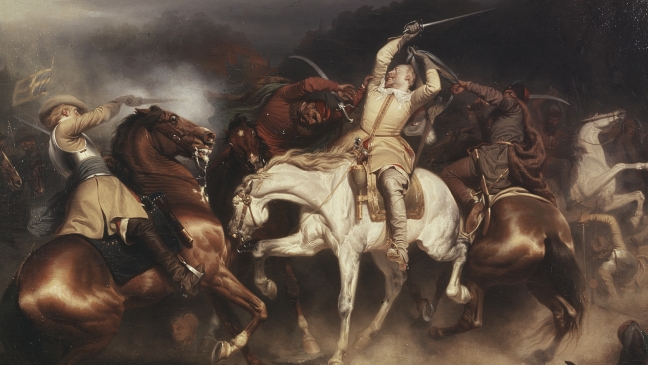Prime minister Rishi Sunak kicked off 2024 by pouring cold water on rumours of a general election in the first half of the year. But that hasn’t stopped shadow secretary of state for education Bridget Phillipson from sharpening her sword.
Earlier this week, she launched an eviscerating attack on the government’s track record and, according to some commentators, her speech could herald a drastic change of tack.
If you listen carefully, you might just hear the sighs from a thousand veteran teachers in staffrooms across the country and the familiar refrain: “The pendulum swings one way, and then it swings the other.”
Music to most teachers’ ears
Remember 2010? Overnight, the kaleidoscope of rainbows of the old Department for Children, Schools and Families (DCSF) logo was torn down and replaced by the logo for the new Department for Education (DfE), as Gove installed his new regime.
And now, here we go again: the spirit of Every Child Matters, the Labour policy that sat at the heart of the old DCSF, is back with a vengeance, and Phillipson’s speech was laced with no fewer than 14 mentions of “partnership”.
The substance of the speech will be music to most teachers’ ears. Polls by Teacher Tapp have shown that action to tackle the depleted infrastructure of mental health and special needs support, as well as an expansion of breakfast clubs, would be hugely popular.
However, change means workload, so it’s the balance between continuity and churn that will worry teachers.
So how much change is this year’s election set to unleash?
Long-standing themes
I’ve been trying to get to grips with the relationship between continuity and churn recently as part of my research on education policymaking and, in the absence of a crystal ball, I offer the following thoughts.
First - and this flies in the face of received wisdom - the forces of continuity can often match, or outweigh, the zest for change.
Zoom out from the buzz of initiatives and ill-timed guidance being showered on schools and you will soon spot what Australian academic Glenn Savage calls “deep undercurrents” below “surface-level” waves of change.
It’s no surprise that Phillipson began her speech by invoking the spirit of former Conservative education secretary Michael Gove, and that she repeatedly hit familiar notes on long-standing themes, such as phonics.
Sometimes, it can feel that the shift happening is bigger than it really is.
Tsars and education hubs
The drivers for change also need to be interrogated. An obvious source of policy churn is the constant drive to announce initiatives. As I’ve argued before in Tes, new task forces, tsars and “hubs” can all offer the convenient illusion of action for stressed-out secretaries of state negotiating the morning media round.
So does that mean the warnings of a huge policy shift will likely result in surface change only?
Well, that depends on the impact of a far deeper source of change: the power of ideas and experts. That’s what I focus on in an article published in the British Educational Research Journal (BERJ) last week.
When Gove, his minister Nick Gibb and their colleagues came into power in 2010, they had spent years in opposition, reading and developing what one senior civil servant described to me as a set of “pretty well-formed” and “comprehensive” ideas.
They had become converts to the work of American academics such as ED Hirsch and Daniel Willingham, and they quickly surrounded themselves with high-profile teachers and educational thinkers.
These turned out to be powerful carriers and advocates of a new guiding philosophy.
‘Populists’ v the ‘elite blob’
A battle of ideas quickly emerged. Gove and Gibb praised their new and preferred “vanguard” of “ordinary” teachers, setting them against an establishment that was dismissed as an elite “blob” of local authorities, universities and unions.
However, this was no one-sided fight.
Critics of Conservative education policy soon struck back with their own round of name-calling, dismissing the new crop of experts as “populists”.
Meanwhile both groups made rival claims to represent “real” or “ordinary” teachers, often focusing more on who had a valid perspective than the substance of the perspective itself.
As I show in my new article, both sides’ tactics were so similar, you could mistake them for mirror images.
Those battles of ideas between expert groups are nothing new, and they’re far from unique to education. In fact, over in the world of public policy studies, researchers have coined a distinctly un-catchy term for such groups: “epistemic communities”.
Evidence, expertise and ideas
What the theory of epistemic communities reveals is that while policymakers need evidence and expertise to shape and justify their policies, policy experts and researchers (like me), need policymakers to listen to our ideas. This kicks off what I call a “mutually beneficial trade in legitimacy”.
The exhausting churn that summons those sighs from staffrooms across the country is an unfortunate side effect of that.
My argument in the BERJ is that we can better understand how policy evolves once we uncover how these communities come together, how they work with policymakers, and what values underpin and divide them. Even more importantly, being honest about these divides could break down the polarisation that plagues education policy.
The question of whether continuity or churn will win out under a Phillipson-led DfE partly depends on which ideas win out, and on which community of experts she decides to listen to.
Right now, that battle could still go either way.
Loic Menzies is a visiting fellow at Sheffield Institute of Education and senior research associate at Jesus College Intellectual Forum
For the latest education news and analysis delivered directly to your inbox every weekday morning, sign up to the Tes Daily newsletter




